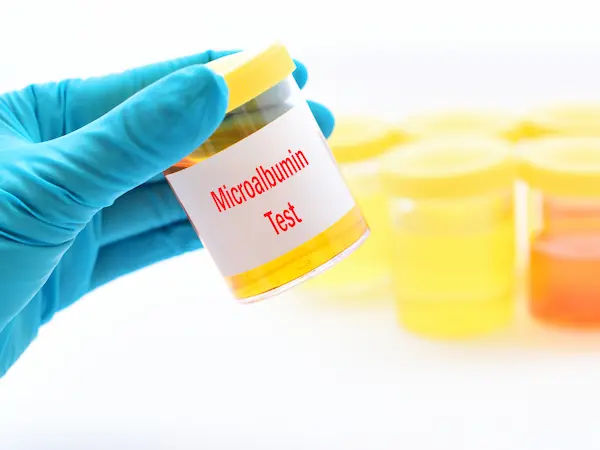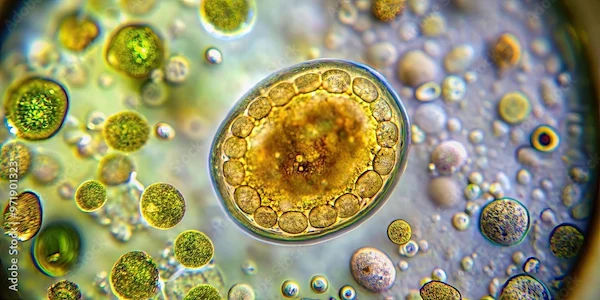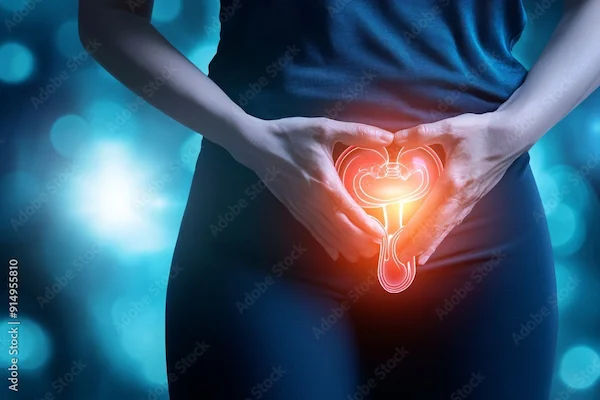Urine Colour: What It Reveals About Your Health
Learn what urine colour reveals about hydration, diet, and health conditions. Discover causes, symptoms, and when to seek medical advice for urine colour changes.

Written by Dr.Sonia Bhatt
Last updated on 13th Jan, 2026

Introduction
Your urine colour can reveal important insights about your health. The kidneys filter waste and excess substances from the blood, producing urine—a liquid waste composed of water, electrolytes, and metabolic byproducts that the body needs to eliminate.
Urine colour serves as a key indicator of hydration, diet, medications, and potential medical conditions. The pigment urochrome, produced from the breakdown of haemoglobin, primarily determines its colour. A pale yellow hue suggests proper hydration, while darker shades may indicate dehydration. In some cases, unusual colours like red, brown, or green could be linked to infections, liver disorders, or dietary factors.
Although urine is typically pale yellow, sudden changes in its colour may signal underlying health issues that require attention. Factors such as hydration levels, urochrome concentration, and additional compounds from diet or medication influence the final urine colour. Paying attention to these changes can help you determine when your body needs more fluids or when it's time to seek medical advice.
Normal Urine Colour and Its Meaning
Slight variations in urine colour are normal. However, understanding what is considered healthy can help you monitor potential health concerns.
1. What Does Normal Urine Look Like?
Normal urine is typically pale yellow to light amber. This colour comes from urochrome, a pigment produced when your body breaks down haemoglobin. Clear to slightly yellow urine indicates good hydration, while a darker yellow indicates mild dehydration. If your urine remains dark for extended periods, increasing fluid intake can help restore a normal shade.
2. Factors Influencing Normal Urine Colour
Several factors affect your urine colour, including:
Hydration levels: More water dilutes urine, making it lighter.
Dietary intake: Certain foods like carrots or beets may alter urine colour.
Medications and supplements: Some vitamins, antibiotics, and pain relievers cause noticeable colour changes.
Your urine colour naturally fluctuates throughout the day, but persistent changes may indicate an underlying health issue.
Abnormal Urine Colours and Their Causes
Urine that deviates from the normal yellow range may be linked to dehydration, dietary choices, medications, or medical conditions. Recognising the possible causes can help you determine whether medical attention is needed.
Dark Yellow or Amber Urine: If your urine appears dark yellow or amber, it often means you are dehydrated. When your body lacks fluids, urine becomes more concentrated, leading to a darker shade. Consuming more water can help restore normal colour.
Red or Pink Urine: Red or pink urine may indicate the presence of blood, a condition known as hematuria. This can result from urinary tract infections, kidney stones, or, in rare cases, more serious conditions like bladder cancer. However, consuming beets, rhubarb, or certain medications can also give urine a red tint.
Brown or Cola-Coloured Urine: Brown or cola-coloured urine can be a sign of liver disorders such as hepatitis or cirrhosis. It may also result from muscle breakdown (rhabdomyolysis) or severe dehydration. Some medications, including certain antibiotics and muscle relaxants, can also darken urine.
Blue, Green, or Purple Urine: Unusual colours like blue or green urine are often caused by food dyes, medications, or bacterial infections. In rare cases, a genetic condition called familial hypercalcaemia can give urine a purple hue. If you notice persistent unusual colours, consulting a doctor is advisable.
Health Conditions Indicated by Urine Colour
Changes in urine colour can sometimes indicate an underlying health issue. Monitoring urine colour along with other symptoms can help in early diagnosis.
Dehydration and Concentrated Urine: If your urine is persistently dark yellow or amber, you may be dehydrated. This happens when your body conserves water, leading to concentrated urine. Mild dehydration is usually corrected by increasing fluid intake, but prolonged dehydration can cause kidney stress.
Hematuria and Its Implications: Red or pink urine caused by blood in the urine may be a symptom of urinary tract infections, kidney stones, or bladder disorders. While some cases are harmless, persistent blood in urine requires medical evaluation to rule out serious conditions like kidney disease or cancer.
Liver Disorders and Urine Colour Changes: Liver diseases such as hepatitis or cirrhosis can cause dark brown or tea-coloured urine due to excess bilirubin in the bloodstream. If your urine is consistently dark and accompanied by yellowing of the skin or eyes, seeking medical advice is crucial.
Medications and Foods Affecting Urine Colour
Your urine colour can change due to certain medications and dietary choices. While these changes are often harmless, being aware of their causes can help you differentiate between normal variations and potential health concerns.
1. Common Medications Altering Urine Colour
Several medications can cause noticeable changes in urine colour. Some of the most common include:
Antibiotics: Can turn urine orange or red.
Vitamin B supplements: Often cause bright yellow or neon-coloured urine.
Pain relievers (e.g., ibuprofen, aspirin): May give urine a darker or reddish tint.
Laxatives containing senna: Can lead to orange or brown urine.
If your urine colour changes after starting a new medication, checking with your doctor can help determine whether it is a normal side effect.
2. Foods That Can Change Urine Colour
Certain foods contain natural pigments that can temporarily alter urine colour. Common examples include:
Beets and blackberries: Can cause red or pink urine.
Carrots and sweet potatoes: May turn urine orange due to beta-carotene.
Asparagus: Sometimes gives urine a greenish hue and a distinct odour.
Rhubarb and fava beans: Can lead to dark brown or tea-coloured urine.
If urine colour returns to normal after a few bathroom visits, food intake is likely the cause.
Diagnostic Evaluation
Changes in urine colour are usually harmless, but persistent or unexplained discolouration may indicate an underlying health issue. Knowing when to seek medical advice can help detect conditions early and ensure timely treatment.
1. When to Consult a Healthcare Professional?
If your urine colour changes unexpectedly and does not return to normal within a day or two, consulting a doctor is advisable. Seeking medical attention is crucial if:
You notice blood in your urine (red or pink discolouration).
Dark urine is accompanied by fatigue, yellowing skin, or abdominal pain.
Urine appears cloudy or foamy, which could indicate kidney issues or infections.
There are unexplained changes in urine colour despite good hydration.
A doctor can help determine whether the change is due to diet, medication, or a medical condition.
2. Tests and Evaluations for Urine Colour Changes
To diagnose the cause of urine colour changes, your doctor may recommend:
Urinalysis: A routine urine test to check for infections, blood, or abnormal substances.
Blood tests: To assess kidney and liver function.
Imaging tests (ultrasound or CT scan): If a structural problem like kidney stones is suspected.
These tests help identify potential health concerns and guide appropriate treatment.
Get the Cause of Your Symptoms Analysed
Hydration and Urine Colour
Your hydration levels significantly affect your urine colour. Proper fluid intake helps maintain clear to pale yellow urine, indicating good hydration and kidney function.
1. Understanding the Link Between Hydration and Urine Colour
When your body is well-hydrated, urine is usually light yellow or almost clear. If you are not drinking enough fluids, your urine becomes darker as your kidneys retain more water to prevent dehydration. Severe dehydration can lead to amber or brown-coloured urine, a sign that your body needs more fluids immediately.
Drinking excess water can also dilute urine, making it almost colourless. While clear urine is usually not a concern, persistently colourless urine may indicate overhydration or certain medical conditions affecting kidney function.
2. Hydration Tips for Healthy Urine Colour
Maintaining an optimal urine colour involves staying hydrated throughout the day. Some tips include:
Drink at least 6–8 glasses of water daily to support kidney function.
Increase fluid intake during hot weather or exercise to compensate for water loss.
Include hydrating foods like cucumbers, oranges, and watermelon in your diet.
Limit caffeinated and alcoholic beverages, as they can contribute to dehydration.
If your urine remains dark despite adequate hydration, consulting a doctor can help determine if an underlying issue is affecting your fluid balance.
Conclusion
Your urine colour can provide important insights into your hydration levels, diet, and overall health. While pale yellow urine usually indicates good hydration, darker shades may suggest dehydration. Red, brown, or unusual urine colours could be caused by food, medications, or underlying medical conditions. Paying attention to urine colour changes can help you identify potential health concerns early. If your urine remains discoloured for an extended period, seeking medical advice ensures timely diagnosis and treatment.
Monitoring your urine colour regularly allows you to stay informed about your body’s hydration and health status. Drinking enough water, maintaining a balanced diet, and consulting a doctor when noticing persistent colour changes are essential for kidney and urinary health. By staying aware of what’s normal for you, you can take proactive steps to prevent dehydration and detect medical issues early.
Consult Top Urologists

Dr. Syed Ismail Ali
General Practitioner
7 Years • MBBS
Hyderabad
Apollo 24|7 Clinic, Hyderabad

Dr. D Bhanu Prakash
General Practitioner
10 Years • MBBS, AFIH, Advanced certificate in critical care medicine, Fellowship in critical care medicine
Hyderabad
Apollo 24|7 Clinic, Hyderabad

Dr. Md Yusuf Shareef
General Practitioner
8 Years • MBBS
Hyderabad
Apollo 24|7 Clinic, Hyderabad

Dr Summaiya Banu
General Practitioner
8 Years • MBBS
Hyderabad
Apollo 24|7 Clinic, Hyderabad
(250+ Patients)

Dr. Rajib Ghose
General Physician/ Internal Medicine Specialist
25 Years • MBBS
East Midnapore
VIVEKANANDA SEBA SADAN, East Midnapore
Consult Top Urologists

Dr. Pradeep Champawat
Urologist
10 Years • MBBS, MS, DNB Urology
Delhi
Apollo Hospitals Indraprastha, Delhi
(175+ Patients)

Dr. Sudhakar G V
Urologist
25 Years • MBBS, MS(Gen.Surgery), DNB Urology
Bengaluru
Apollo Clinic, JP nagar, Bengaluru

Dr. Samiran Das Adhikary
Urologist
26 Years • MBBS; MS(General Surgery); Mch(Urology). Senior Consultant - Urology & Renal Transplant Surgery
Bhubaneswar
Apollo Hospitals Old Sainik School Road, Bhubaneswar

Dr Anupam Sharma
Urologist
18 Years • MBBS, MS(Gen Surgery), DNB (Urology)
Delhi
Apollo Hospitals Indraprastha, Delhi
(25+ Patients)

Dr. Barun Kumar
Urologist
12 Years • MBBS MS MCH UROLOGY DNB GENITOURINARY SURGERY
Guwahati
Apollo Clinic Guwahati, Guwahati




